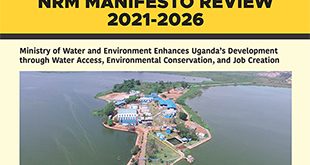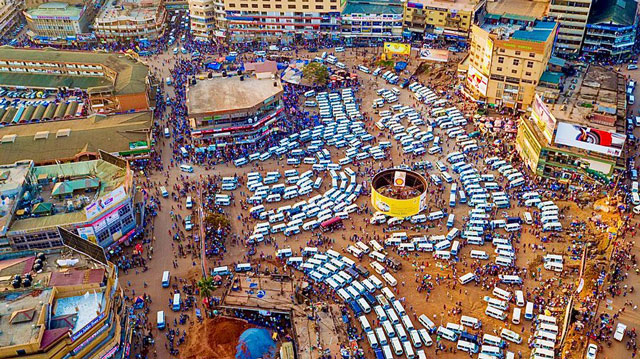
Kampala, Uganda | THE INDEPENDENT | The State Minister for Kampala Capital City and Metropolitan Affairs, Benna Namugwanya, presented the achievements KCCA registered between 2016 and 2021 during the NRM Manifesto Week at the Office of the Prime Minister in Kampala. The Manifesto week aims at accounting to Ugandans in respect to pledges and presidential commitments that the ruling NRM Government made for the last 5 year elective term of office.
In 2016 the ruling NRM Party Manifesto and the 23 Presidential Strategic Directives stated aspiration to transform the Ugandan Society from a low income society to a competitive middle income country. Kampala Capital City Authority (KCCA) being the implementing agency of this ministry achieved the following over the last five years:
The Ministry developed and launched the Greater Kampala Local Economic Strategy which aims at job creation, easing connectivity and mobility within the Kampala Metropolitan area. KCCA research shows that 70% of the people working in Kampala city don’t reside in it. Majority of people working in the city reside in the surrounding districts like Mukono and Wakison. This is contributing to traffic congestion in the city as these workers commute daily to and fro the city.
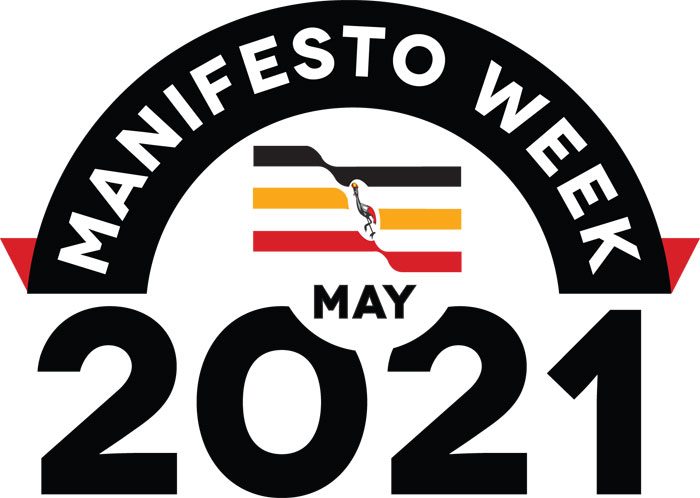 “So through integrated planning, bigger markets in metro areas like Wakiso, schools in the metropolitan areas, the Road to Kabusu Bunamwaya will ease congestion. When such services are provided in the metro areas people will not need to come to Kampala to get the same services which can be obtained in the metro areas,” says Namugwanya.
“So through integrated planning, bigger markets in metro areas like Wakiso, schools in the metropolitan areas, the Road to Kabusu Bunamwaya will ease congestion. When such services are provided in the metro areas people will not need to come to Kampala to get the same services which can be obtained in the metro areas,” says Namugwanya.
This strategy aims to have KCCA plan together with the local governments to ensure easy connectivity and mobility in the city. Issues like Drainage Master Plan and job creation for greater Kampala Metropolitan area where work spaces like markets, and artisan parks being established. It is hoped that when these service centres are located in different local governments like Mukono, Wakison and Mpigi the people will reduce commuting to Kampala for the same services available in their localities. The other pillar of this strategy is the upgrading housing of especially slum dwellers.
KCCA is also planning to have city buses for mass transportation so that smaller vehicles can be left in homes instead of congesting the city. But this is being delayed by limited funding.
In terms of infrastructural development, KCCA of the 2,110 km of road network only 467km were paved in 2016. Today 616km of these roads are tarmacked meaning that over the last five years KCA added only 149km of paved roads in the city. Some 728km of the city are gravel and maintained while 766km of gravel are in very poor state. This means that only 31% of the roads in Kampala is paved.
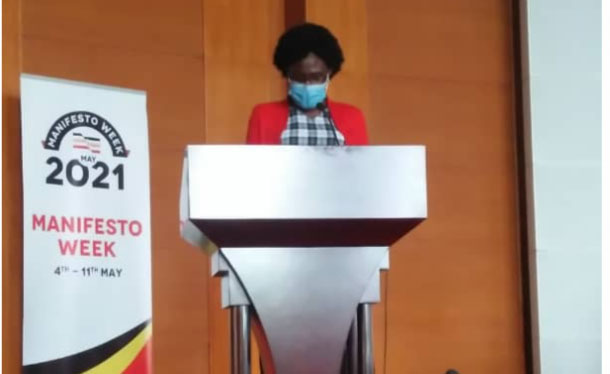
Annually KCCA receives Shs25 billion from government for road maintenance in Kampala. According to the KCCA Executive Director, Dorothy Kitakka, said by April Shs9billion.
“We have pitched for more money for more funding. Our annual requirement for road construction in KCCA is over Shs150 billion. But the authority works with what is available to it,” Kitakka said.
Other achievements of KCCA include:
Security
The Minister stated that a number of CCTV cameras were installed and street gangs like Kifeesi were eliminated.
To create order, the boda boda riders are being registered, the minister said. “The stages are being gazatted and boda boda free zone in the central business district. If it was not for COVID-19 lockdown it would have been done but we are moving steadily,” Namugwanya said.
Cleaner city
The Anti-Literring policy is in place and this will go with misuse of pedestal lanes and the city dwellers are being educated on this.
Street lighting has improved with installation of 4,988 solar lights which is clean energy and good for the environment.
Markets
Kasubi mkt was reconstructed can accommodate up to 1000 markets. This is creating jobs for the vendors. Plans for redevelopment of Ntinda, Gaba and Bukoto markets are ongoing while the redevelopment of Nakawa market is appended on the Jinja Expressway. Kitintale mkt and Busega mkts are both under construction and these will each accommodate 2000 vendors.
KCCA issued 20,000 licenses for food handlers and enforcement of regulations of food handlers.
Revenue collection increased by 197 between 2010-2015 and by 6% from 2016 to 2020. This is due to use of innovation like automatic revenue collection like e-citie to reduce human interface and corruption.
Health
Immunization and delivery of mothers and renovation of city health centre; and KCCA was recognized for most improved district in TB management.
In education, KCCA supported the teachers’ SACCO with a networth of over Shs2billion
Physical Planning
KCCA has managed to reduce building plan approval from 60days to 14 days
Wealth creation initiatives
KCCA established an employment bureau which links job seeking people to potential employers. There is also the Kyanja Farm resource centre where people especially youth are trained on methods of urban farming. The Kabalagala youth centre is equipping youth with life and vocational skills. Under the Presidential Initiative on Wealth Creation, Emyooga, over Shs4.6billion has been disbursed to 300 out of the 419 SACCOs within Kampala.
According to minister Namugwanya, the challenges that remain include: inadequate funding, old and dilapidated buildings especially in public schools, vandalism, enforcing security, misuse of infrastructure like driving on pavements, an inadequate transport system.
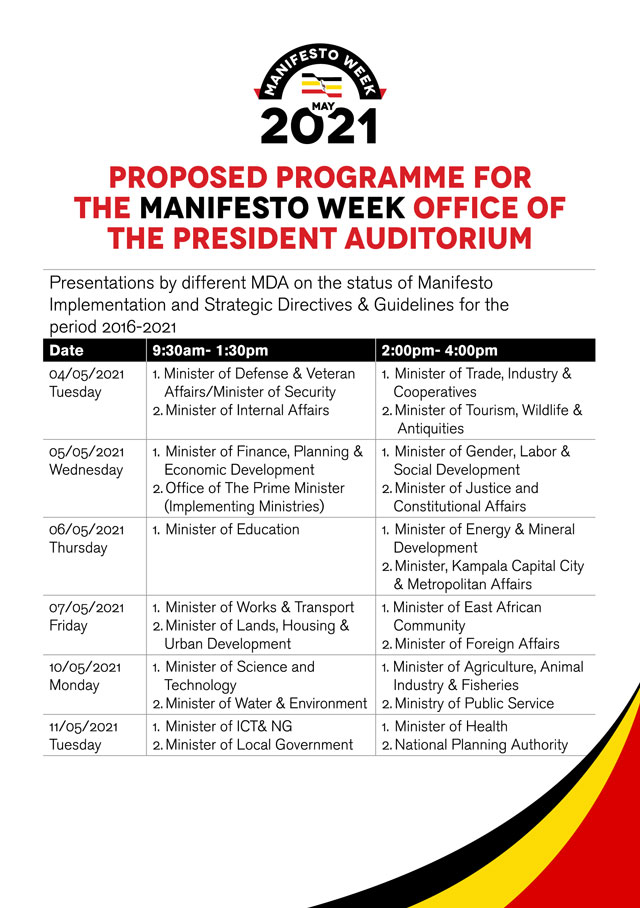
 The Independent Uganda: You get the Truth we Pay the Price
The Independent Uganda: You get the Truth we Pay the Price

